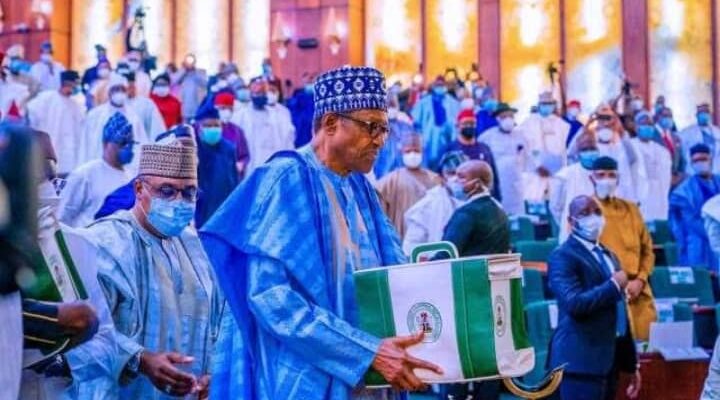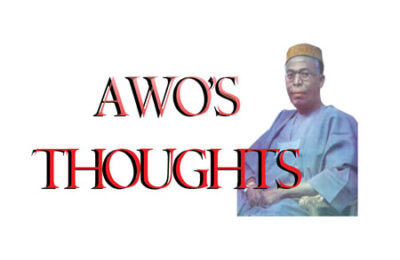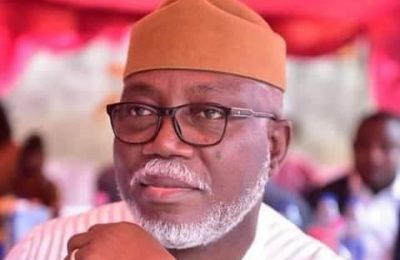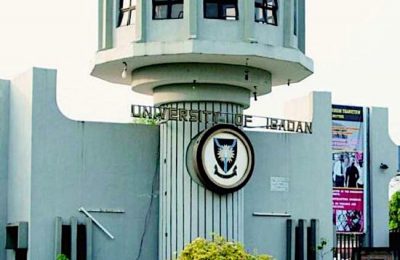
It was meant to be a presentation before the Senate Committee on Foreign Debts. But, in reality, it turned out to be the first unofficial review of next year’s budget – which has not even been approved by the National Assembly, NASS.
She delivered the bad news in typical Federal Government style – in full confidence that her audience of NASS members would dose off during the presentation. Even if awake, most would not understand the implications of what they are being told. The blind leading the blind is an apt metaphor for this.

What the minister said
The best place to start is what Mrs Zainab Ahmed said. Here it is.
“The total public debt stock comprising the external and home debts of federal and state governments and the Federal Capital Territory stood at N31.01tn ($85.90bn) as at June 30, 2020.
“It is projected, based on existing approval, to rise to N32.51tn by December 31, 2020 and to N38.68tn by December 31, 2021.”

This means that the country will borrow N6.17tn in 2021. Remember, that the 2020 Budget proposed N13.08tn expenditure and budget deficit of N5.02tn. That is what is being reviewed. If only we can reach N13.08tn expenditure and borrow only N5.02tn, then deficit would be 38.3per cent of expenditure and 62 per cent of revenue. The new borrowing figure thrown at the mass has altered the financial situation more than slightly. Clearly, N6tn means sourcing for 46 per cent of next year’s expenditure and an astonishing 75 per cent of the proposed revenue.
It would have been terrifying enough if the President Mohammadu Buhari administration had demonstrated the ability to collect revenue budgeted in the past. But, as we stagger towards the end of 2020, it is clear that, once again, only about 60 per cent of the revenue will be collected. That means something in the region of N4.8tn or 80 per cent of actual revenue next year.
What will happen?
“You can’t argue on your knees”
No Minister of Finance has made so many false projections about the budget being managed by the government she serves as the current one. To be quite candid, if there is anything on which one can bet anything, it is to assume that what the Federal Minister of Finance said about the future – even three months away – will not happen. In nearly 30 years of writing on these, her pronouncements have become the absolutely most unreliable as a guide for decisions by others. So, even the N6tn will most likely be exceeded by the time 2021 ends.
All addicts know the feeling of dependence and inferiority complex experienced when they meet the supplier(s) of their kicks – especially when the addict is broke and the pusher(s) are ready to be generous. Self-respect is lost.
Like every addict, the Federal Government is hooked on debt. Apparently, nobody in the government has ever heard of the principle of diminishing returns. As Nigeria is taken annually to the debt-slave market by the government; and as we need more loans – just like drug addicts – to keep up the false appearances of well-ness, the economy and the nation are inevitably undermined. Our ability to conduct foreign policy in the national interest is compromised with regard to our major lenders.
Each loan which must be repaid, not out of income but more loans, make it more difficult for the nation to grow at the rates that would lift Nigerians out of poverty. By the end of next year, if not before then, Nigeria would have reached the disgraceful situation in which, we will be collecting revenue just to pay debts. No other major country on earth is in that horrible situation. We are already suffering from some of the insults associated with abject poverty.
That explains why the GIANT of Africa had to send the Speaker of the House, Femi Gbajabiamila, to Ghana to plead for better treatment of Nigerians. Our President could not go because he established the precedence of driving out our neighbours in 1985. On April 15, 1985, Nigeria’s Minister of Internal Affairs Major-General Mohammed Magoro, suddenly announced the intention of the then military government headed by Buhari to expel all illegal immigrants before May 10. Nigeria made good on that announcement. Ghanaians constituted about half of the 700,000 Africans issued the short Quit Notice in what became known as Ghana Must Go era. It was a pitiful spectacle; serving as a precedent.
Now, in 2020, Nigerians are the people begging to stay in Ghana. Buhari, out of personal embarrassment, could not go to Ghana and be confronted with this embarrassment. He sent Gbajabiamila.
We could not even make a credible threat!!! A crippled lion is no match for a leopard – not to talk of a tiger. We have discovered that Ghanaians don’t need us. Like the very poor Head of Family, to whom others listen politely, but go on and do just as they please, the countries of ECOWAS know the Poverty Capital of the World. It is Big Brother Nigeria. They also know we go round the world continuously begging for money like an almajiri nation. So, they treat us with the deserved disdain associated with people living in poverty and failure.
“Nigeria, OPEC peers to lose $272bn in oil revenue.” – Punch, Nov 5, 2020, P. 40
Poverty Capital of the World is a title we will retain for a long time as long as we have a government whose economic model remains “borrow-spend-waste and get embezzled.”
The Economic Management Team has left no doubt that nobody in the government has any idea in his head other than “borrow-and-spend.” Unfortunately for those of us who have no other country to call our own we are captive victims of a government steadily ruining our economy. I predicted earlier that the N6tn projected borrowing will most likely be exceeded. The cardinal reason is crude oil – which has long become a curse more than a blessing.
The report of a national newspaper has summarised the likely position for 2020. Even based on that, we are in trouble. More worrisome is the outlook for the price of crude in the first quarter of 2021, Q1-2021. At the moment, the price is hovering around $38 per barrel for the rest of this year. That is $2 below this and next year’s budget bench mark price of $40.
At the same time, most of the advanced economies are going into the second round of lockdown which could roll into Q1-2021. If that happens, as it is now most likely, crude prices will remain depressed below $40 and demand will be lower than expected.
That combination of factors threatens the 2021 budget and all existing revenue/borrowing projections are now off the table.
FG, NASS and Economic forecasting
One of the things I find most astonishing is the apparent lack of economic forecasters in the Federal Government. Otherwise, it is difficult to understand why the FG with its resources cannot engage them and take their advice into consideration when preparing annual budgets. And, if the FG won’t, what is wrong with the National Assembly doing it?







